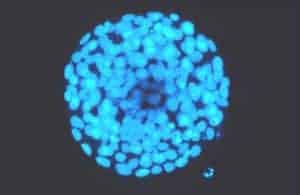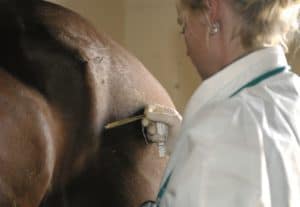
Physiology of Equine Aging
Rutgers researchers have gained a better understanding of how horses’ bodies change as they age. Here’s what we know.


Rutgers researchers have gained a better understanding of how horses’ bodies change as they age. Here’s what we know.

One veterinarian describes how to use endometrial culture, cytology, and biopsy to evaluate subbertile mares.

Researchers discuss equine rotavirus infection in foals, bacterial upper airway infections, and more.

Reproductive endocrinology can influence a horse’s overall health and well-being.

Carbohydrates are the main source of dietary energy for horses and are important for fast, quick-burning power.

Fat is an energy powerhouse that is a horse’s most abundant energy source.

Vets can use intracytoplasmic sperm injection, oocyte transfer, and cloning to help subfertile mares produce foals.

Take a look at protein and its role in the equine diet.

Managing itchy horses can be a perplexing and frustrating challenge. Veterinarians share ideas on how to help.

Molybdenum isn’t usually a topic of conversation, but this mineral is an important part of your horse’s diet.

In some areas, water sources can contain substantial amounts of Mn, which can affect dietary needs.

Iron plays a key role in oxygen transport and immune function in the horse.

Currently, there are no medications approved by the FDA to control fever in horses.

Find out how iodine plays an important role in equine metabolism, growth and development, and overall health.

Time, patience, and care are critical because full rehabilitation can take weeks, months, or even longer.

High blood potassium levels cause hyperkalemia. Here’s what to watch for and how to treat this dangerous condition.
Stay on top of the most recent Horse Health news with